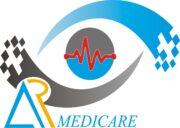Optometry
Optometry involves examining the eyes to check for eye disease before providing treatment. Sometimes that treatment includes glasses, contact lenses, or magnifiers.
Optometrists (sometimes known as opticians) are eye-care professionals who train at university to examine the eyes.
All the specialist optometrists in the eye unit support consultant ophthalmologists (eye doctors) in macular/medical retina, cornea and glaucoma clinics. They also work independently in eye injection follow- up clinics and perform some laser treatments. Our dispensing optician provides a full glasses service for children coming to the eye hospital.
Core Optometry services include:
- Glasses tests for adults with complicated eye problems
- Complicated contact lenses (when sight cannot be improved with glasses) e.g. Keratoconus, corneal distortion, very high prescriptions, and scarred eyes
- Adult and children low vision assessments (magnifiers and other aids)
- Children’s glasses tests and checking the back of the eye as part of the “Children’s Rapid Access Clinic”, ophthalmology children’s clinic, and the Orthoptic screening programme
- Specialist children’s contact lens fitting
- Specialist glasses dispensing for children
- Special school clinics at WESC foundation and other centres
- DVLA Goldmann visual field testing
- Arranging and managing hospital placements for Pre-registration Optometrists and visiting undergraduates from the University of Plymouth Optometry School
Extended role services include:
- Macula and Medical Retina clinic: working with the consultant ophthalmologist to examine patients referred by their local optician. We help to diagnose their eye problem and arrange treatment if required, as well as monitor patients who are having treatment
- Cornea clinic: working alongside the consultant ophthalmologist to monitor patients who might need or have had a corneal graft, treat corneal infection, and diagnose corneal conditions
- Ectasia monitoring clinic: assessing patients with keratoconus and similar eye conditions to detect any progression in the disease and to refer for treatment with corneal cross linking if appropriate
- Glaucoma clinic: managing patients with unstable glaucoma to consider further treatment with eye drops, laser, or surgery.
- Laser clinic: performing laser to clear debris off the back of the implant after cataract surgery or improve drainage from the eye in patients with glaucoma.
We can provide:
- Glasses prescriptions
- RGP contact lens fitting
- Soft contact lens fitting
- Cosmetic contact lens fitting
- Bandage contact lens fitting
- Scleral contact lens fitting
- Low vision aids such as magnifiers
OD. Miss Maria Javaid
5-km Darkhana Road, Plot C, Kamay Shah PirMahal ( T.T. Singh Punjab).
If you have any questions regarding your operation, please contact us on 03001363515. They are available 9am-5pm, Monday to Saturday.
At AR Medicare Multi-Specialty Hospital, the receptionists will guide you. Phone enquiries should be directed as above.
Some orthoptic and optometry follow-up may be available in community settings closer to home. This will be discussed with you if appropriate.
We work closely with the paediatric ophthalmology team and orthoptic department to provide glasses, contact lenses, and low vision support for children as appropriate.
